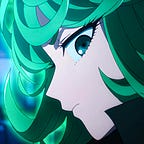Chuunibyou: An Unknown Growth Phase in Teens
It is perfectly normal for someone to imagine themselves as a superhero when writing a story. A person is said to have misconceptions of glory, fame, beauty, etc., when he believes that he has a hidden power or an undiscovered archive of knowledge within himself. This misconception is known as Chuunibyou in Japanese, and it mostly occurs in students entering their teenage years. The most common form of Chuunibyou is when one thinks they can do anything but do not feel like putting in the effort to achieve it.
Chuunibyou or Middle-school 2nd Year Syndrome is a common term in Japan that describes a person at the age of fourteen who would either act like a know-it-all adult or think they have special powers no one else has. If you are one of these few teens, do not panic because it does not relate to any medical condition or mental disorder. It is more like a growth phase for you.
The roots of the word originate from Hikaru Ijuin in his radio program: Hikaru Ijuin’s UP. During an episode that aired on 11 November 1999, Ijuin had mentioned that he was still contracting Chuunibyou himself. In the following week, he had started a corner called, “Am I sick? Oh, it’s just Chuunibyou.” in which Ijuin reads cases provided by his radio listeners in his radio.
Masakazu Amahisa and Katsuki Tanaka’s “Bakadrill” featured an article related to Chuunibyou. Boushi Chino of Kadokawa’s “Yomazugirai” (Didn’t Read It. Hated It.) mentioned that this vicious circle” makes him want to add “Chuunibyou after Fifty” as a sub-header on the novel, Don Quixote for the following quote:
“The protagonist perceived the world through colored glasses. When people talk to him, they will not deny his delusions and play along, but that makes him go deeper into his fantasies.”
There are three types of Chuunibyou traits, according to the Chuunibyou User Manual:
DQN:
The person pretends to be a delinquent or anti-social, but in reality, they are not. To make up for this, they tell made-up stories about gang fights or crimes and pretend to know about that subculture, even tending to boast about it. DQN is slang for an anti-social person or an annoying delinquent.
An Example:
“Look at those bandages wrapped around you! What happened?”
“I had a bunch of gang fights.”
“Come on. I know you’re too kind to be a gangster.”
Subcultural or Hipster:
Here, people prefer uncommon or lesser trends and establish themselves as being unique. They do not adore the subculture itself but strive to obtain the cool factor by not having the same interests.
An Example for Subcultural Chuunibyou:
“When I collect Pokemon cards, I only collect the ones from Japan.”
“Can you read all of those?”
“S-sure I can.”
Evil Eye:
The person desires mystical powers and assumes that he or she has a hidden power inside them. It is the trait where they create a nickname, especially for said ability. It is also known as the delusional nature.
An example of Evil Eye:
“Please do not take that bandana off my left wrist because it is sealing an evil spirit inside me. If you take it off, I may go berserk.”
Chuunibyou has its advantages. For example, it can be a great source of self-esteem. But unless it is from another source, it is best not to alter it.
In 2008, light novel author Hyōya Saegami wrote a book called Chūnibyō Toriatsukai Setsumei Sho (Chuunibyou User Manual), in which he identifies three types of Chuunibyou: DQN, who act like delinquents; Subculture, who go against the mainstream trends; and Evil Eye, who aspire to have special powers.
The term mainly makes its appearance in the anime series Love, Chuunibyou & Other Delusions. The series follows a high school boy named Yūta Togashi, who tries to discard his embarrassing past grandiose delusions until he meets Rikka Takanashi, who exhibits signs of the Chuunibyou syndrome.
In conclusion, Chuunibyou is normal, but if unchecked, it can interfere with your social life. The majority grow out of it in a few months after they struggle with it for a while. But, few people still have it as they enter adulthood. Chuunibyou is natural and normal, but it should not be confused with mental disorders.
